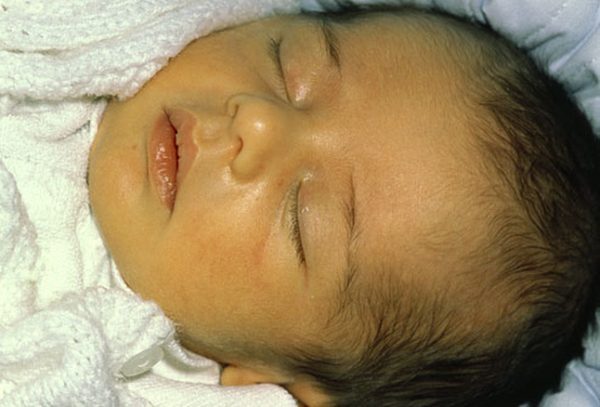Fertility is equally a thought as family life progresses today, don’t you think? Have you noticed that some couples struggle to conceive? Although when everything else seems fine, yet something seems missing. What if the missing link isn’t diet, exercise, or timing — but another basic factor called sleep?
It’s true that we live in a busy world. Most of the time, most couples keep aside the rest aspect in life for work, or maybe entertainment, or stress. However, emerging research is revealing an unrealised truth. This is the impact of poor sleep on fertility. In fact, it could be far greater than most realise. Sleep is not merely a break from activity; this human act is a biological necessity that can restore balance to hormones, metabolism, and emotional well-being. That said, these are all essential for reproductive health.
Studies that were published by Axia Women’s Health and Nova IVF Fertility show that irregular sleep, insomnia, or chronic sleep deprivation can disrupt key reproductive hormones. It happens in both men and women. In simple terms, the effects of sleep on fertility go beyond tiredness — poor sleep can make it more difficult to conceive. Further on, we also need to understand what science says about this growing concern. We need to know how lack of sleep can cause fertility problems. In addition to this, what can be done to restore a good connection between sleep and reproduction is a matter of concern.
Sleep and Fertility: What research do we rely on?
Women and Connection to Sleep: Hormones, Ovarian Reserve, and IVF Outcomes
In the case of women, sleep and fertility have a deep connection. There are many studies revealing that poor sleep quality or even having short naps for prolonged periods can make conception a dream only.
In a recent study, 2024 BMC Women’s Health study, the researchers found that sleep disturbances, late bedtimes, or lack of 6- 8 hours of sleep are reasons for reduced ovarian reserve and lower IVF success rates.
Women who tend to sleep less than 7 hours or, in some cases, 9 hours or more had low embryo quality and which affected pregnancy rates.
Furthermore, Hormone imbalances due to lack of sleep have shown evidence to cause irregular menstrual cycles, delayed ovulation. In many cases, it is a reason for anovulation, which means a scenario where the failure to release an egg is evident.
According to Nova IVF Fertility, it has been seen that sleep-deprived women often experience fluctuations in melatonin and cortisol. These are two vital hormones that directly influence the production of good egg quality and then also timely embryo implantation.
Men and their relationship with Sleep: Sperm Health and Hormonal Decline
Men do need to take note of a few things when it comes to proper sleep. Studies showcased from Frontiers in Genetics (2024) showcase that poor sleep patterns can have a negative effect on sperm count, motility, and testosterone levels.
Sleep deprivation lowers testosterone levels. This is in fact, very important for sperm production and libido.
Regular lack of rest can increase the possibility of oxidative stress. Moreover, this is a factor that damages sperm DNA and reduces fertility potential.
Studies reveal that men who sleep less than six hours a night will have poor semen quality compared to those who get good sleep like about 7–8 hours. So, this only goes to prove that the sleep impact on fertility cannot be stated as a woman’s issue — it will affect couples together.
Biological Realities: The way that Poor Sleep deteriorates Fertility
When we discuss about fertility, sleep is often not even considered as a reason. But the truth is that sleep is a vital biological process that ensures reproductive balance. Below, you can see how insufficient or irregular sleep can negatively affect fertility.
1. Hormonal Imbalance: Is there a Chain Reaction Effect here?
Once in deep sleep, the brain tends to release hormones that streamline the ovulation in women and testosterone in men.
Poor sleep will increase cortisol, which is none other than the stress hormone.
High cortisol levels can control reproductive hormone release.
Such situations can be bad for women, as this can cause irregular ovulation or missed cycles. However, in the case of men, it leads to reduced sperm production and quality.
Simply put, sleep deprivation can upset your hormone system and its balance. It would almost resemble a song expert who is missing from an orchestra.
2. Circadian Rhythm and Melatonin Disruption
Your body runs on an internal 24-hour clock — the circadian rhythm — which tells it when to rest, eat, and reproduce. When the person stays up late, over night work late-night shifts, or takes irregular sleep, their rhythm gets confused.
This disrupts melatonin, a hormone produced in darkness that not only regulates sleep but also protects reproductive cells from damage.
In women, reduced melatonin leads to poorer egg quality.
In men, it causes oxidative stress in sperm, making conception harder.
Even small sleep irregularities can interfere with the body’s hormonal timing — especially during the menstrual cycle or sperm formation.
3. Oxidative Stress and Inflammation
When you don’t sleep enough, your body increases the production of inflammatory chemicals like cytokines (IL-6 and TNF-alpha). This inflammation can harm the ovaries, uterus, and testes.
In women, it can affect egg maturation and embryo implantation.
In men, it can damage sperm DNA and reduce mobility.
Think of it like some rust that is developing on metal — without rest. It is when your reproductive cells lose their shine and strength.
4. Metabolic and Endocrine Disturbances
It is a reality that poor sleep impacts metabolism and the endocrine system. These are the two pillars of fertility.
Sleep loss increases insulin resistance and raises the risk of polycystic ovary syndrome (PCOS), a major cause of infertility.
It will disrupt thyroid function. Another reality is that it is affecting menstrual regularity and early pregnancy stability.
Sleep deprivation issues can also lead to weight gain. In fact, this can further increase hormonal imbalance.
In short, the effects of lack of sleep on fertility extend to the body’s entire metabolic network.
5. Relying on Psychological and Behavioural Factors of Men and Women
Sleep deprivation means it can affect biology — it affects behaviour.
When we lack regular sleep, it can reduce intimacy.
It increases stress, anxiety, and emotional burnout, which further elevates cortisol levels.
For those couples who are undergoing IVF or fertility treatments, they should remember out. This is what insomnia can make the emotional journey even more difficult.
Poor sleep thus forms a vicious cycle: stress disrupts sleep, and poor sleep increases stress — both of which damage fertility.
How Serious Is the Risk of Lack of Fertility? What Research Says
While the evidence linking poor sleep and fertility is strong, it’s still evolving. Most studies are observational — meaning they show associations, not direct causation. However, the consistency across populations and mechanisms suggests a clear relationship.
According to studies that were revealed for Axia Women’s Health, irregular sleep issues might not be the sole cause of infertility. but are often a significant contributing factor, especially when combined with stress, irregular lifestyles, or metabolic issues.
Also Read: Things to Consider When Looking for a Hospital for Your Pregnancy
So yes — to answer the question, “Can lack of sleep cause fertility problems?” — scientific research increasingly says yes, and improving sleep could be one of the simplest yet most powerful ways to support reproductive health.
Practical Steps: How to Improve Sleep and Support Fertility
If you’re trying to conceive, improving sleep isn’t optional — it’s essential. Here’s how to restore rest and reproductive balance:
- Prioritize 7–8 hours of quality sleep: Both too little (<7) and too much (>9) sleep can affect fertility outcomes.
- Maintain a regular sleep schedule: Go to bed and wake up at the same time daily, even on weekends.
- Create a sleep-friendly environment: Use blackout curtains, keep your room cool, and limit phone or TV time before bed.
- Reduce stress: Try mindfulness, meditation, or yoga to calm the nervous system and lower cortisol.
- Avoid caffeine and alcohol before bedtime: Both interfere with deep sleep stages.
- Address underlying disorders: Conditions like sleep apnea or insomnia should be treated medically.
- Coordinate with fertility experts: Discuss sleep patterns with your reproductive endocrinologist or fertility coach — sleep health is part of reproductive health
Conclusion: Rest Is Reproductive Power
The science is clear: the impact of poor sleep on fertility goes beyond feeling tired. It’s a complex web of hormonal, metabolic, and emotional effects that can quietly reduce your chances of conception.
Quality sleep supports hormone balance, egg and sperm health, emotional stability, and overall fertility outcomes. In contrast, chronic sleep deprivation disrupts these systems — proving that rest is not a luxury, but a reproductive necessity.
If you’re on the fertility journey, think of sleep as your body’s natural fertility booster. When you prioritise rest, you’re not only improving your energy — you’re giving your body the rhythm, recovery, and resilience it needs to create life.





